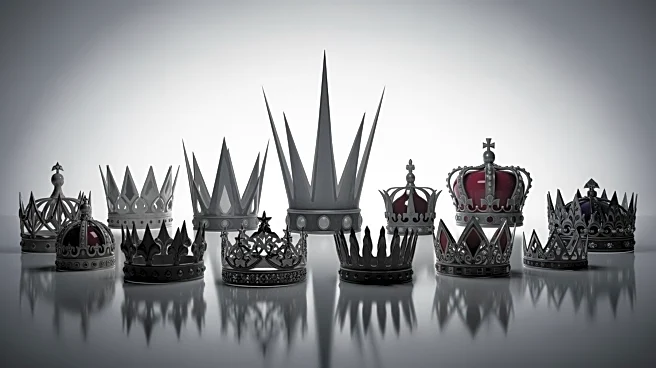What's Happening?
The 'No Kings' protests in Washington, D.C., and across the U.S. have been largely attended by educated White women in their 40s, according to demographic research. These protests, characterized by inflatable
costumes and peaceful demonstrations, aim to denounce President Trump's perceived authoritarianism. Psychotherapist Jonathan Alpert describes the protests as a form of group therapy, where participants seek community and validation. The movement reflects a broader cultural trend of blending emotional catharsis with civic activism, as participants express grievances and seek historical significance.
Why It's Important?
The 'No Kings' protests highlight a significant demographic's response to President Trump's leadership style, emphasizing the role of civic activism in contemporary political discourse. The movement's composition and methods reflect a shift towards non-violent, symbolic protest tactics, which may influence future demonstrations. The protests also underscore the growing intersection of personal and political identities, as participants seek community and validation through shared political goals. This trend could impact future political movements and the ways in which individuals engage with political issues.
Beyond the Headlines
The 'No Kings' movement raises questions about the effectiveness of protest as a tool for political change. While providing a sense of community, the protests may not lead to tangible policy shifts. The use of 'therapy speak' and the desire for historical significance suggest a cultural shift towards personalizing political engagement. This phenomenon may influence how future movements are organized and perceived, potentially affecting their impact on public policy and societal change.









